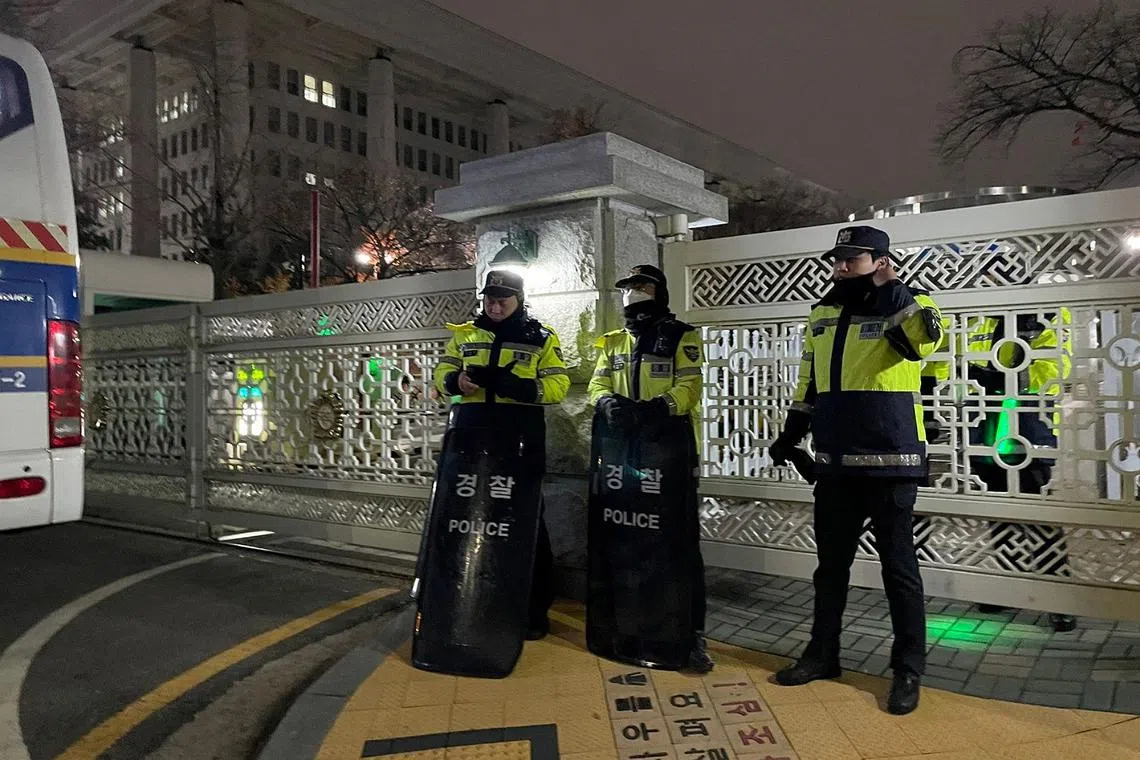‘Can’t believe I’m seeing martial law declaration in my lifetime’: Shock, confusion among S.Koreans
Sign up now: Get ST's newsletters delivered to your inbox

Police officers standing guard in front of the gate to the National Assembly martial law was declared, in Seoul, South Korea, on Dec 3.
PHOTO: REUTERS
Follow topic:
South Korean President Yoon Suk Yeol declared emergency martial law on Dec 3 night,
The announcement has left citizens and experts alike scrambling to understand its implications.
According to South Korea’s Constitution and the Martial Law Act, emergency martial law can be declared during wartime, in cases of a major national emergency akin to war, or when public order is severely disrupted, rendering administrative and judicial functions significantly impaired.
“I can’t believe I’m seeing a martial law declaration in my lifetime,” said a 30-year-old Bae, echoing the sentiments of many who are witnessing such an event for the first time.
The financial markets have responded with panic, exacerbating the public’s distress. Korean stocks and the Korean won have plummeted, while the price of cryptocurrencies like Bitcoin plunging.
“Should I go to work tomorrow? Is everything shut down?” one resident wrote on social media, expressing a common concern as many grapple with uncertainty about their daily routines.
Most citizens are voicing disbelief and shock, with comments such as, “I never thought I’d live to see something like this happen in South Korea”. The pervasive lack of clarity from government officials is further fuelling speculation and anxiety.
Emergency martial law grants the military extensive powers to maintain public order, and can include temporarily taking over administrative and judicial authority, and imposing restrictions on civil liberties, such as freedom of assembly and the press.
Curfews or other movement restrictions and deploying military personnel to manage civil unrest or enforce the law can also be enforced. THE KOREA HERALD/ASIA NEWS NETWORK

